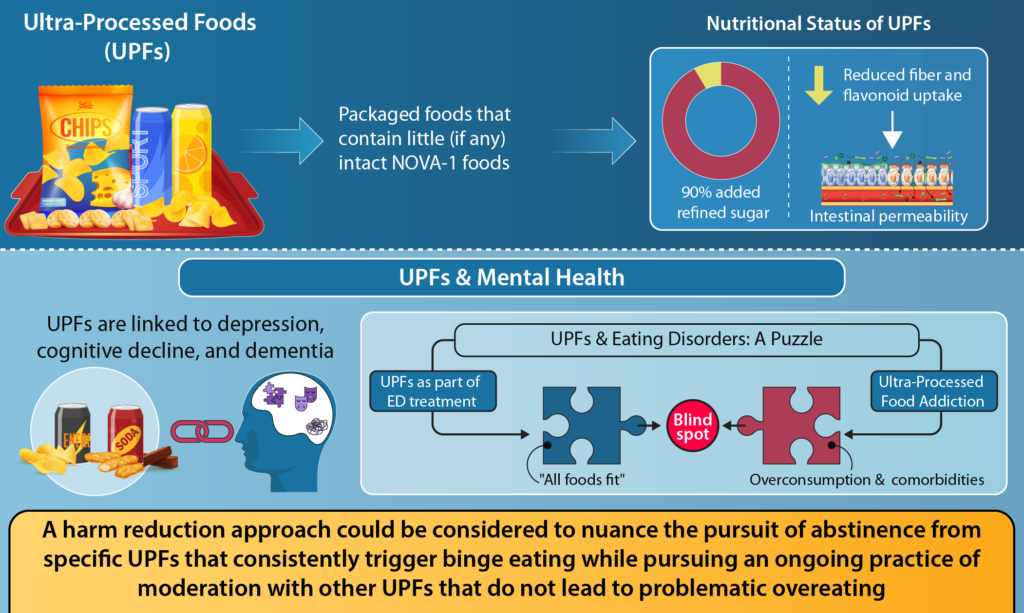Ultra-processed foods and mental health: Where do eating disorders fit into the puzzle?
by David A. Wiss & Erica M. LaFata

Ultra-processed foods (UPFs) like pastries, packaged snacks, fast foods, and sweetened beverages have become dominant in the modern food supply and are strongly associated with numerous public health concerns.
Subscribe for weekly insights and research exploring the link between nutrition & mental health.
Abstract
Ultra-processed foods (UPFs) like pastries, packaged snacks, fast foods, and sweetened beverages have become dominant in the modern food supply and are strongly associated with numerous public health concerns. While the physical health consequences of UPF intake have been well documented (e.g., increased risks of cardiometabolic conditions), less empirical discussion has emphasized the mental health consequences of chronic UPF consumption.
Notably, the unique characteristics of UPFs (e.g., artificially high levels of reinforcing ingredients) influence biological processes (e.g., dopamine signaling) in a manner that may contribute to poorer psychological functioning for some individuals.
Importantly, gold-standard behavioral lifestyle interventions and treatments specifically for disordered eating do not acknowledge the direct role that UPFs may play in sensitizing reward-related neural functioning, disrupting metabolic responses, and motivating subsequent UPF cravings and intake.
The lack of consideration for the influences of UPFs on mental health is particularly problematic given the growing scientific support for the addictive properties of these foods and the utility of ultra-processed food addiction (UPFA) as a novel clinical phenotype endorsed by 14–20% of individuals across international samples.
The overarching aim of the present review is to summarize the science of how UPFs may affect mental health, emphasizing contributing biological mechanisms. Specifically, the authors will
1. Describe how corporate-sponsored research and financial agendas have contributed to contention and debate about the role of UPFs in health;
2. Define UPFs and their nutritional characteristics;
3. Review observed associations between UPF intake and mental health conditions, especially with depression;
4. Outline the evidence for UPFA;
5. Describe nuanced treatment considerations for comorbid UPFA and eating disorders.
